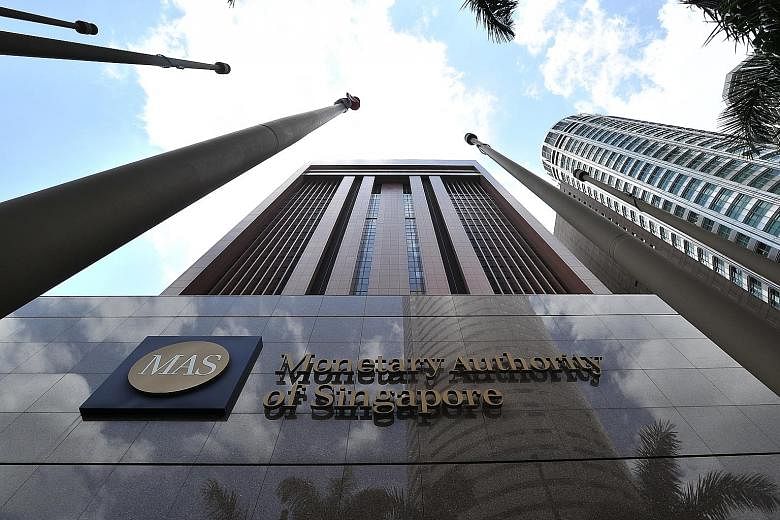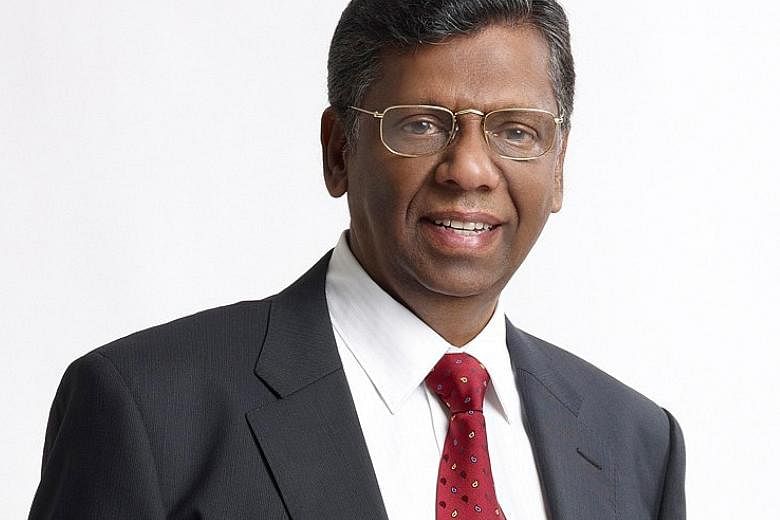The spate of high-yield bond defaults that has hit investors here is a reminder that no investment is ever fail-safe, the Monetary Authority of Singapore (MAS) said yesterday.
The Singdollar bond market has suffered five defaults since November last year, representing $1.1 billion or 0.74 per cent of all bonds outstanding.
There had been no bond defaults here since 2009, but that changed with the string of collapses led by Trikomsel, then Pacific Andes Resources Development, Swiber, Perisai Petroleum Teknologi and Swissco.
A sixth issuer, Rickmers Maritime, is in technical default after missing its last coupon payment but is trying to convince note holders to approve a debt-restructuring plan.
MAS said in a media statement yesterday: "Our regulations cannot prevent or reduce the risk of defaults of corporate bonds. It is not possible to achieve this. Bond defaults can happen.
"Investors have to take personal responsibility for their decisions. In the case of bond investments, they need to look beyond the headline yield offered."
-
$1.1b Total value of five defaults which the Singdollar bond market has suffered since November last year. The string of collapses was led by Trikomsel, then Pacific Andes Resources Development, Swiber, Perisai Petroleum Teknologi and Swissco.
Nevertheless, MAS has identified certain areas where more could be done.
For example, a unique aspect of the Singapore junk-bond market is that individual investors take up a large portion of the issuance pie. This makes it harder for the fragmented bond holders to band together to assert their rights.
More can be done to enable bond holders to reach out to each other more efficiently, said MAS, which is also seeking to make clear to investors what rights they have in a default situation before they buy the bonds.
"We are carefully studying the matter, and will also engage the relevant industry players," MAS said.
The Securities Investors' Association (Singapore), the investors' lobby group also known as Sias, has recently stepped in at MAS' behest to play an aggregator role and facilitate dialogue between bond holders and Rickmers Maritime.
Sias chief executive David Gerald said other note holders are welcome to approach Sias and use it as a platform for discussion as the organisation has access to pro bono lawyers and financial advisers.
The MAS yesterday stood by its position that its regime here is "fundamentally sound".
It reiterated that it will introduce the Asian Bond Grant next year, which it hopes will encourage more issuers to obtain credit ratings in order to qualify for greater subsidies.
The cost of obtaining a credit rating is typically up to 10 per cent of first-time issuance costs, which range from $1 million to $3 million.
But mandating credit ratings is "not the best way forward", the MAS said. Instead, it wants issuers to disclose key financial metrics, such as their interest coverage ratios, more clearly to investors.
Private banks have also moved to improve their sales practices, the MAS noted.
Its private banking industry group announced new disclosure standards yesterday that will require banks to disclose all quantifiable benefits such as sales commissions earned from their clients.
But some note holders who have been burned by the recent defaults and hoped for more sweeping changes were disappointed.
Private investor Ravi Murarka said: "Bond-holder rights mentioned in the trust deed are either not deliverable by the trustee or not achievable by bond holders. This is a systemic problem which needs to be addressed if Singapore wants to develop a bond market."



